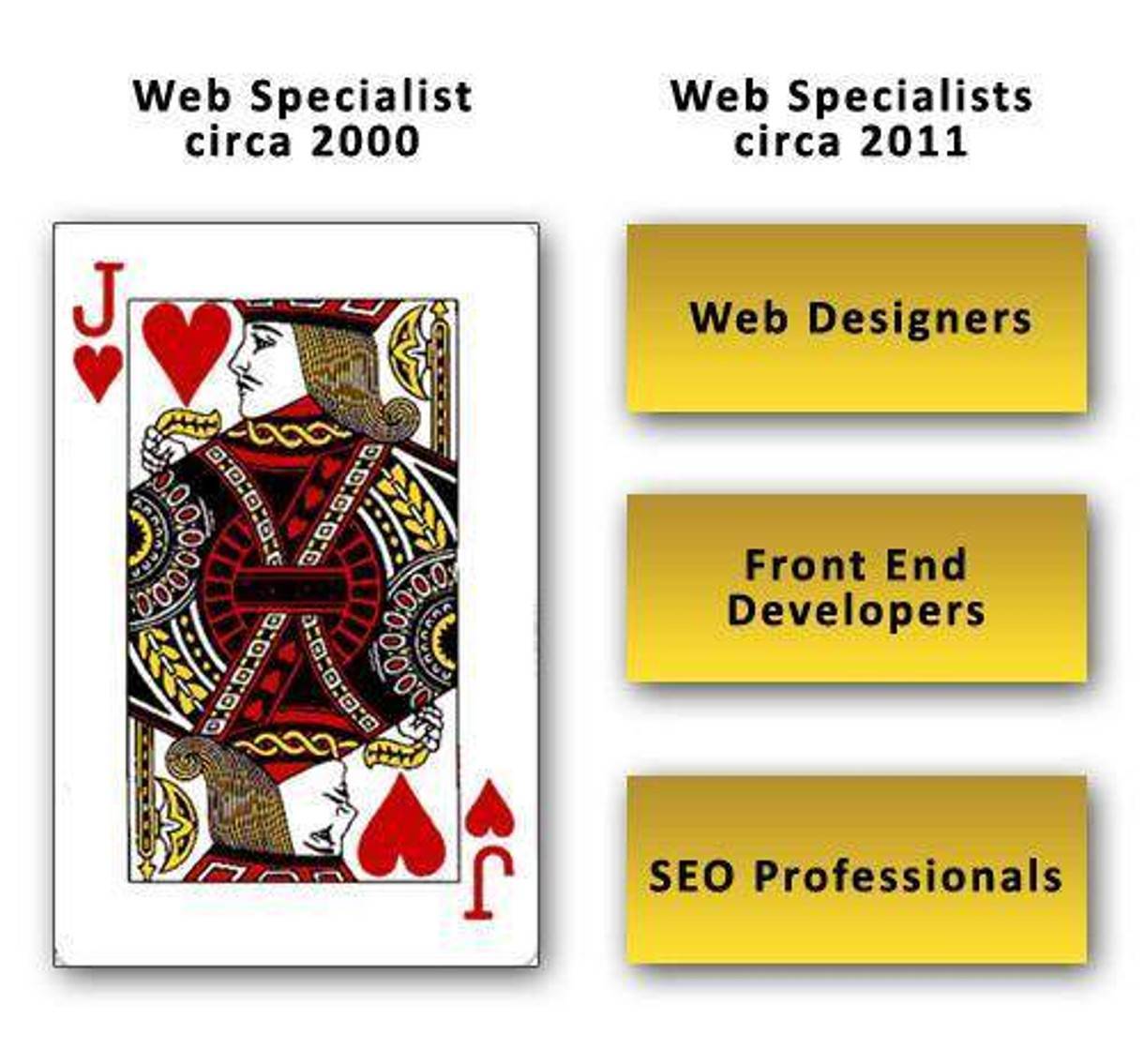The Rise of the CMS and the Fall of the 'Webmaster'

The rapid growth of user-friendly social media sites such as Twitter and Facebook has attracted a plethora of new users to the web, as well as increased the frequency of which an “average” user browses the Internet. Such growth has prompted websites to regularly deliver their audience with fresh content to capitalize on each visit, and that demand is where modern-day content management systems (CMS) have come into play.
Content management systems are no recent development, but in recent years the development of their usability, accessibility, and availability have peaked through open source collaboration of web developers. These advances have caused a change in the nature of the web development industry itself. The role of the traditional webmaster has been reduced to almost exclusively initial development, and the bulk of responsibilities of owning a site can be held by the site owners themselves. A democratic-like paradigm that shifted influence over the Internet from the few (web development specialists) to the many (web development clients and regular Internet users) now exist.
It may seem that content management systems reduce the need for web specialists, but the progress in the development of CMS's has been as beneficial to developers as it has been their clients. For example, as mentioned above, modern-day content management systems ease the technical hurdles that used to exist when clients wanted to publish or edit content on their websites (subsequently lowering the level of expertise needed to make such changes). This is advantageous for clients because they no longer need to call a web developer for every edit or update on their website. Although, there are often additional costs associated with integrating a website with a CMS, in the long run, not having to pay their web development vendor each time they require a small change saves money in the long run.
It is also constructive for developers because efforts can be shifted from general maintenance to providing their client with a higher quality and more usable product. This allows developers more time to perfect the specific trade they are most interested.
Roles Redefined

The role of the web specialist has not been reduced, only redefined. The traditional webmaster was a jack of all trades, but web experts today have become much more specialized.
Web designers, who focus on the aesthetics of a website, have had more time to apply efforts to styles and techniques, creating designs that are more creative and more practical (CSS3, jQuery). Once limited by tables and restrictive layouts, the modern web has much fewer boundaries as to what is possible and these designers will pave the way for what is innovative design.
Front-end developers can concentrate efforts on developing methods that provide better accessibility, usability, and cross-browser compatibility (W3C Web Standards, HTML5). As mobile and tablet technology continues to grow, these front-end developers will be the driving force behind web standards.
Search Engine Optimization (SEO) has become a completely new field in the industry, created by the recent growth of web content and users. Marketing specialists have a variety of tools and practices (Google Analytics and Webmaster tools, SEOmoz, SEO CMS plugins) that focus solely on helping their clients attract a demographic of web users that fits your target audience.
This also means that web development clients will be expected to allocate some of their time to job activities related to the website, such as learning the intricacies of the various content management systems. Employees who are well educated on the ins and outs of CMS’s may be more highly regarded. Check back next week for the second part of this blog post, in which we will address some of the strengths and differences of the common CMS's.




